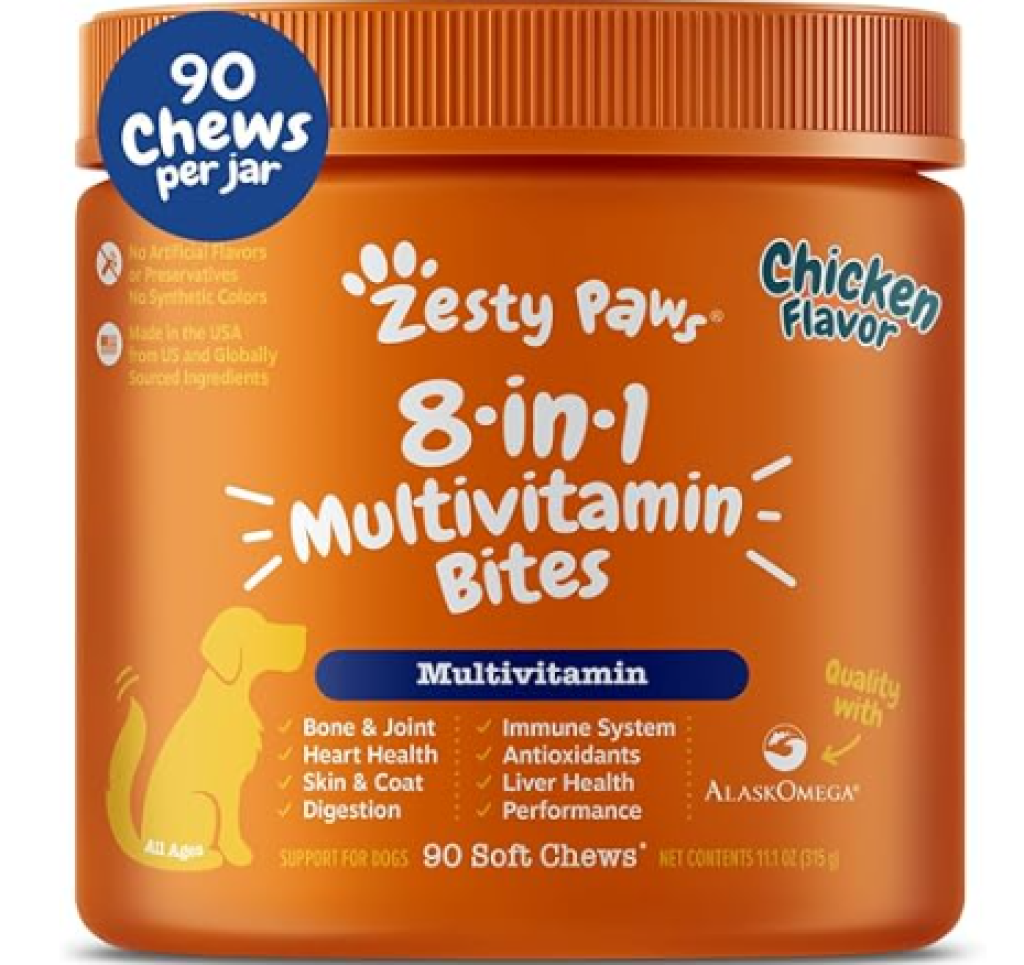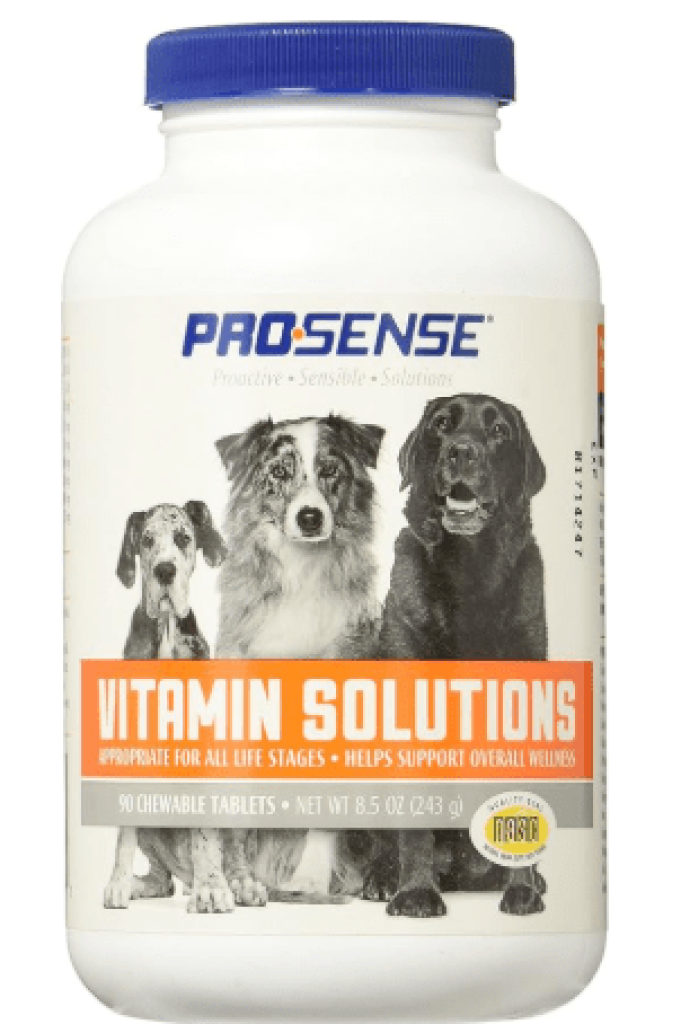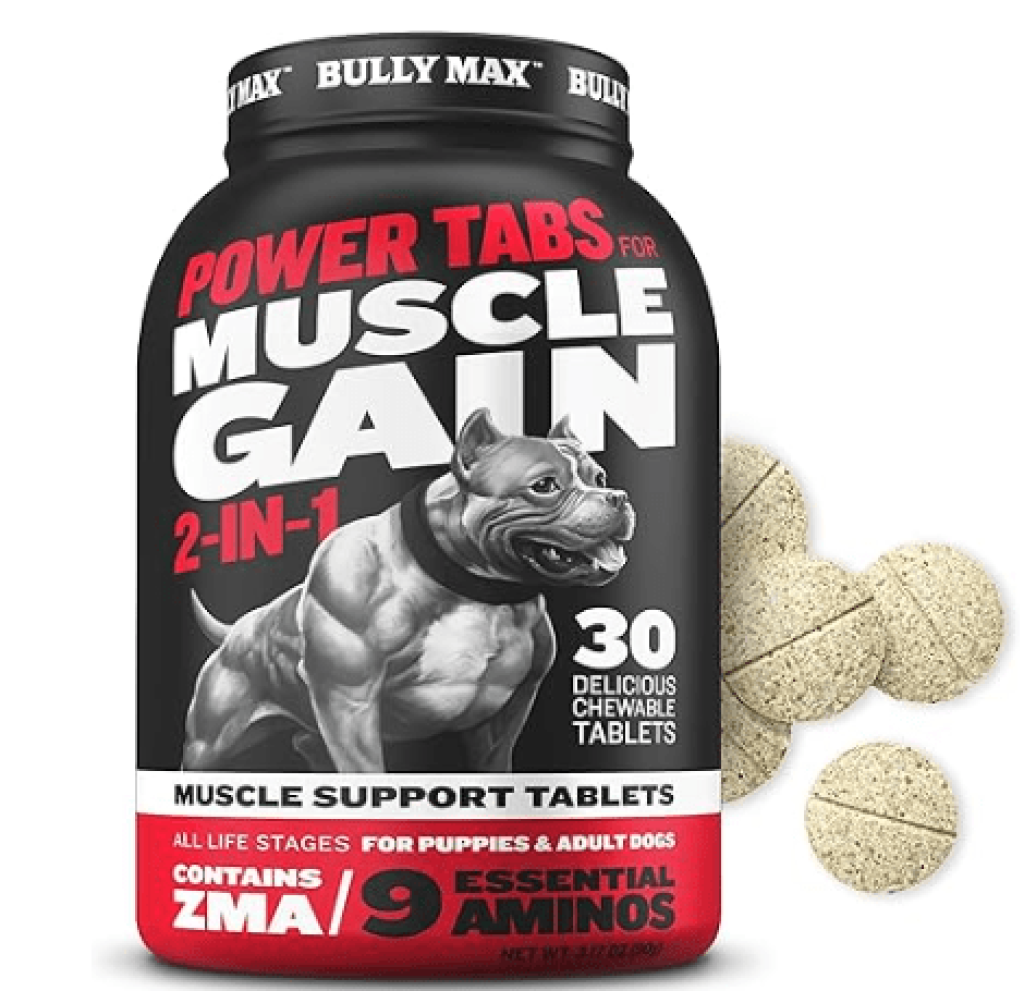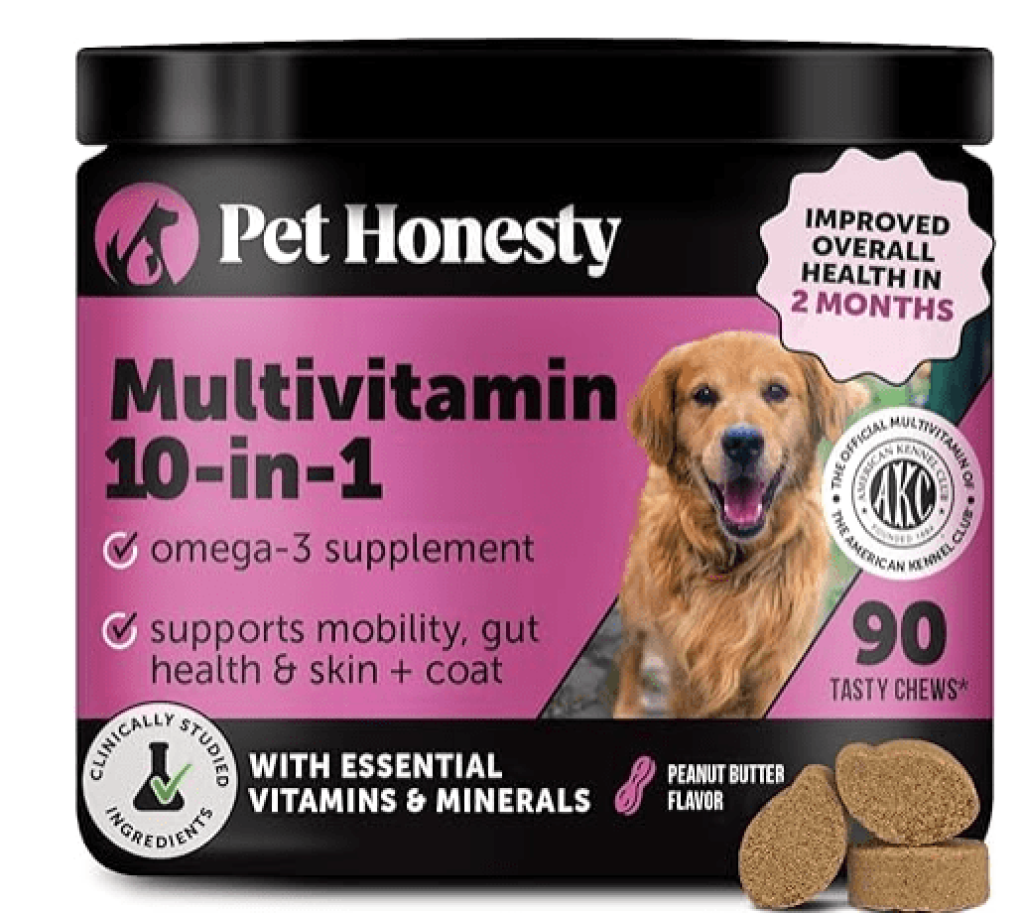Which vitamins are essential for your dog and why? The scientific and accurate answer
In today’s world, where pets have become part of the family, ensuring their health and proper nutrition is of particular importance. Dogs, like humans, need essential vitamins to have a healthy body, clear skin, strong bones, and a robust immune system. Each of these micronutrients plays a unique role in the functioning of vital organs and maintaining the biological balance of the dog’s body. Their deficiency or excessive consumption can cause serious health problems.
Vitamin A – Protects Vision and Boosts Immune System
Vitamin A is a fat-soluble vitamin that plays a key role in cell growth, vision, immune system function, and maintaining healthy skin and coat in dogs. It is also vital for puppies to develop proper bones.
Vitamin A
Essential for vision, immune function, and skin health
Deficiency Symptoms
-
Dry Skin
Rough, dry, or scaly skin due to impaired skin cell production
-
Night Vision Problems
Difficulty seeing in low light conditions (night blindness)
-
Weakened Immunity
Increased susceptibility to infections and illnesses
-
Slow Growth in Puppies
Delayed development and growth in young dogs
Natural Food Sources
-
Beef & Chicken Liver
Extremely rich in preformed vitamin A (retinol)
-
Cooked Carrots
High in beta-carotene, which converts to vitamin A
-
Pumpkin
Excellent source of beta-carotene and other carotenoids
-
Sweet Potatoes
One of the richest natural sources of beta-carotene
Important Information
Vitamin A is crucial for maintaining good eyesight
Provide provitamin A carotenoids like beta-carotene
Provide preformed vitamin A (retinol)
Both deficiency and excess can cause health issues
Vitamin D – Bone Health and Calcium Regulation
Vitamin D is essential for the absorption of calcium and phosphorus and is one of the most important factors in strengthening bones and teeth. Unlike humans, dogs are unable to produce vitamin D through sunlight and must obtain it through their diet.
Vitamin D
The “Sunshine Vitamin” essential for bone health and immune function
Deficiency Symptoms
-
Muscle Weakness
Reduced muscle strength and physical performance
-
Bone Deformities
Especially noticeable in growing puppies (rickets)
-
Increased Fracture Risk
Weakened bones more susceptible to breaks
Natural Food Sources
-
Fatty Fish
Salmon, sardines, mackerel, and tuna
-
Fish Oil
Cod liver oil is particularly rich in vitamin D
-
Egg Yolks
Contains vitamin D, especially from pasture-raised chickens
Important Information
Your body produces vitamin D when skin is exposed to sunlight
Vitamin D helps your body absorb calcium for strong bones
Plays a crucial role in immune system regulation
Blood test can determine if you have vitamin D deficiency
Vitamin E – Cell Protection and Anti-Aging
Vitamin E is a powerful antioxidant that protects the body’s cells from oxidative damage and plays a role in the health of the skin, heart, immune system and reproduction in dogs. It is also effective in reducing inflammation and improving joint health.
Vitamin E
A powerful antioxidant essential for nerve, muscle, and skin health
Deficiency Symptoms
-
Muscle Weakness
Reduced muscle strength and coordination
-
Nerve Problems
Peripheral neuropathy, balance issues, and coordination difficulties
-
Reproductive Problems
Infertility issues and pregnancy complications
-
Skin Diseases
Dry, rough skin and increased susceptibility to UV damage
Natural Food Sources
-
Vegetable Oils
Sunflower, olive, wheat germ, and safflower oils
-
Seeds & Nuts
Sunflower seeds, almonds, hazelnuts (in moderation)
-
Leafy Green Vegetables
Spinach, broccoli, and other dark leafy greens
Important Information
Protects cells from damage caused by free radicals
Essential for maintaining healthy nerve function
Helps protect eyes from age-related damage
Requires fat for proper absorption in the body
Outward Hound Fun Feeder Slo Bowl, Slow Feeder Dog Bowl
Vitamin K – Prevents Bleeding and Normal Clotting
Vitamin K is essential for the blood clotting process and prevents internal and external bleeding. Some medications, such as anticoagulants, may decrease levels of this vitamin, thereby increasing the risk of bleeding.
Vitamin K
Essential for blood clotting and bone health
Deficiency Symptoms
-
Unexplained Bruising
Easy bruising without apparent cause or injury
-
Bleeding Gums or Nose
Spontaneous bleeding from gums or frequent nosebleeds
-
Bloody Stools
Blood in stool or dark, tarry stools indicating bleeding
-
Increased Blood Clotting Time
Wounds take longer to stop bleeding
Natural Food Sources
-
Leafy Vegetables
Broccoli, lettuce, kale, spinach, and other greens
-
Beef Liver
Rich source of vitamin K and other nutrients
-
Fish Oil
Contains vitamin K along with omega-3 fatty acids
Important Information
Essential for proper blood coagulation and wound healing
Plays a role in bone metabolism and calcium regulation
Newborns often receive vitamin K shots to prevent deficiency
Blood thinners like Warfarin affect vitamin K metabolism
Purina one classic ground chicken and brown rice entree adult wet dog food
B Vitamins – Energy and Brain Function
B vitamins are among the most important water-soluble vitamins that play an important role in energy metabolism, nervous system health, red blood cell production, and brain function. Each of these vitamins (B1 to B12) has a specific function.
Symptoms of B vitamin deficiency:
General fatigue and weakness
Loss of appetite
Neurological problems such as tremors
Cognitive decline in older dogs
Natural food sources:
Red and white meats
Eggs
Whole grains
Brewer’s yeast
Purina Fancy feast Gravy wet cat food variety pack, Delights with cheddar Grilled Collection
Vitamin C – Boosts the immune system and reduces inflammation
Although dogs, unlike humans, can synthesize vitamin C in their bodies, levels of this vitamin may decrease during times of stress, illness, or severe inflammation. Vitamin C is a powerful antioxidant that helps improve joint health, reduce inflammation, and fight free radicals.
Symptoms of Vitamin C Deficiency:
Joint Pain
Weakened Immune System
Increased Chronic Diseases
Natural Food Sources:
Fruits such as Strawberries, Oranges, and Kiwi (in moderation and with caution)
Fresh Vegetables such as Bell Peppers
1-Zesty Paws
2-ProSense Vitamin
3-Bully Max 2-in-1 Muscle Builder Power Tabs for Puppies & Adult Dogs
4-Pet Honesty
Are vitamin supplements necessary for dogs?
The use of vitamin supplements for dogs is a sensitive issue and depends entirely on the individual condition of each animal. In general, if your dog is eating a balanced, varied diet rich in natural nutrients, he usually does not need to take vitamin supplements. A diet prepared from high-quality ingredients such as fresh meat, vegetables, whole grains and healthy fat sources can fully meet the basic vitamin needs. However, sometimes some specific physical and physiological conditions require that the veterinarian add supplements to the dog’s diet, based on clinical examinations and test results.
For example, growing puppies may need supplements such as vitamin D to strengthen bones or vitamin B for proper muscle development and brain function due to their high energy, protein, mineral and vitamin needs. Pregnant or lactating dogs may also develop deficiencies that cannot be compensated for without supplementation due to increased nutritional needs for fetal development or to provide quality milk for puppies. During this period, the role of vitamins such as A, E, and folic acid becomes more prominent.
On the other hand, older dogs with weakened immune systems often need antioxidants such as vitamins C and E to strengthen the body’s resistance to disease. Also, in some medical conditions such as chronic digestive diseases, liver or kidney problems, or impaired absorption of nutrients, vitamin supplements can be a way to compensate for nutritional deficiencies. In these situations, the exact diagnosis of the type of deficiency and the appropriate amount of vitamin should only be made by a specialized veterinarian..
Dog Vitamin FAQ
Simple guide to canine nutrition
Do all dogs need vitamin supplements?
No, if your dog’s diet is complete and balanced, supplements are usually not needed.
When supplements may be needed:
Illness, pregnancy, old age, or rapid growth – only with vet prescription.
Is excessive vitamin intake harmful?
Yes, especially fat-soluble vitamins A and D can cause toxicity.
Important:
Any supplement should be taken in precise doses as directed by a veterinarian.
Best natural vitamin sources?
Fresh meat, liver, fish, vegetables, fruits, and eggs.
Balanced diet:
High-quality commercial food or balanced homemade diet meets needs.
Signs of vitamin deficiency?
Hair loss, dry skin, weakness, fatigue, vision problems, weak immunity.
Diagnosis:
Consult a veterinarian for definitive diagnosis.
Can human supplements be used?
No, human supplements may contain toxic ingredients for dogs.
Safe alternative:
Always use pet supplements recommended by a veterinarian.






